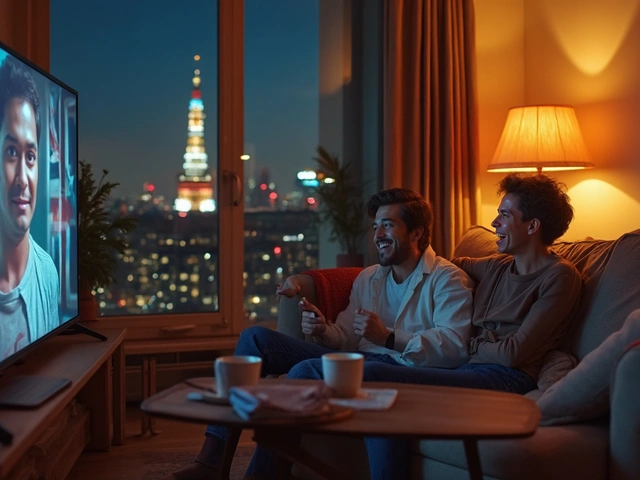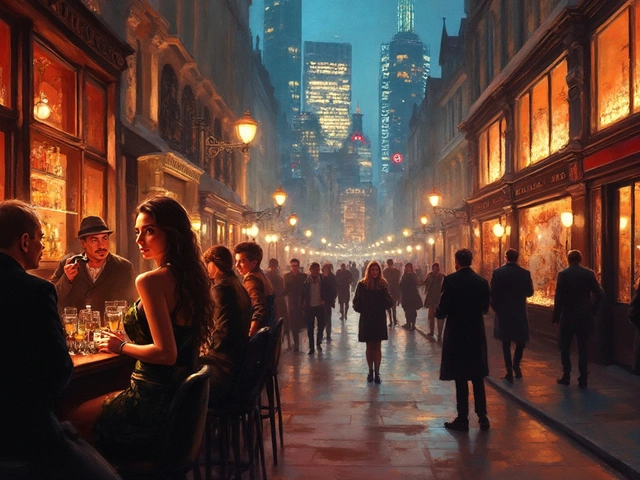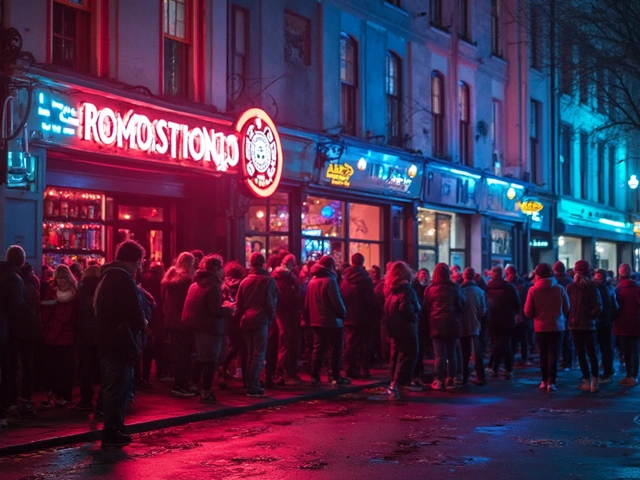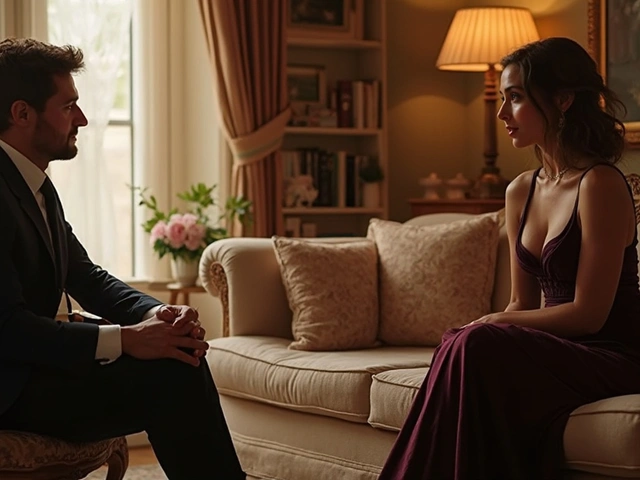In London, live music isn’t just an event-it’s a rhythm that pulses through the city’s oldest pubs, grandest halls, and hidden basement clubs. From the echo of a violin in a 19th-century theatre to the thump of bass in a converted warehouse in Peckham, London’s music scene doesn’t just host gigs-it tells stories. You don’t need a ticket to a festival to feel it. Walk down Camden High Street after dark, and you’ll hear fragments of punk, soul, and electronic beats bleeding from doorways. Step into a quiet corner of Soho, and a jazz trio might be wrapping up a set with a nod to Coltrane. This is a city where music lives in the walls.
The Roundhouse: Where History Meets Noise
The Roundhouse in Chalk Farm has been a landmark since 1847, originally built as a railway engine shed. By the 1960s, it became the epicenter of London’s counterculture-Pink Floyd played here before they were famous, and Jimi Hendrix turned the space into a psychedelic temple. Today, it still holds that raw energy. The acoustics are unmatched: the dome-shaped ceiling throws sound back like a live echo chamber. You can catch everything from experimental electronica by a local Bristol artist to a full orchestra performing film scores by Hans Zimmer. It’s not just a venue-it’s a living archive. If you want to feel like you’re part of something bigger than a concert, this is where you go.
The O2 Arena: When the Whole City Stops
When a global superstar like Beyoncé or Ed Sheeran announces a show at The O2, London grinds to a halt. Over 20,000 people pour into this massive venue on the Greenwich Peninsula every night of a tour. The scale is overwhelming-the lights, the screens, the synchronized crowd chants. But what makes it iconic isn’t just the size. It’s the fact that it’s built on the site of the old Millennium Dome, a symbol of London’s reinvention after the turn of the millennium. The O2 isn’t just a concert hall; it’s a cultural reset button. You’ll see families from Croydon, students from UCL, and tourists from Tokyo all standing shoulder-to-shoulder, singing along to the same chorus. It’s one of the few places in London where class, age, and background vanish the moment the lights dim.
Shepherd’s Bush Empire: The Velvet Throne of Rock
Open since 1903, Shepherd’s Bush Empire still feels like stepping into a time machine. The gilded balconies, the original stained glass, the red velvet curtains-it’s all preserved. But don’t let the elegance fool you. This is where legends like David Bowie, Oasis, and Adele tested their early material. The acoustics are warm and intimate, even for a 2,300-capacity room. You can hear every breath, every string bend. It’s the kind of place where a singer can drop a verse a cappella and the whole crowd holds its breath. If you’re looking for a night that feels personal, even in a crowd of thousands, this is it. Grab a pint from the bar before the show-it’s the same bar where Morrissey once had a drink after a gig in 1992.
Camden Assembly: The Heartbeat of Underground London
Camden used to be the undisputed king of London’s alternative scene. While some say it’s lost its edge, Camden Assembly proves otherwise. Housed in the old Barfly venue, it’s where indie bands from Hackney and grime artists from Brixton still launch their careers. The stage is small, the lighting is dim, and the crowd is loud. You’ll find teenagers in vintage band tees, 30-somethings who still remember the Britpop era, and international students who’ve never heard of Blur but love the sound. The venue doesn’t book big names-it books the next big thing. Last month, a 19-year-old rapper from Tottenham sold out the room. The week before, a folk duo from Leeds played to a packed crowd, their harmonies echoing off the brick walls. This is where London’s music scene is born.
The Jazz Cafe: Soul in the Heart of Camden
Not all great nights in London start with a guitar. At The Jazz Cafe, the air smells like incense, coffee, and old vinyl. It’s a place where you can hear a Nigerian Afrobeat band one night and a soul singer from Birmingham the next. The decor is rich-dark wood, hanging plants, murals of Nina Simone and Fela Kuti. The sound system is engineered for warmth, not volume. You don’t just listen here-you feel it in your chest. Regulars know to arrive early: the best seats are at the back, near the windows overlooking Camden’s backstreets. On a rainy Tuesday, the place still fills up. Because in London, good music doesn’t wait for the weekend.
Under the Bridge: The Secret Spot in Vauxhall
Most tourists never find it. Locals don’t talk about it much-until you ask. Under the Bridge is a tiny, unmarked venue tucked under the railway arches near Vauxhall station. No website. No social media. Just a red door and a bouncer who nods if you look like you belong. Inside, it’s concrete, damp, and electric. Bands play here because they want to be heard, not seen. You might catch a post-punk band from Leeds, a spoken-word poet from Peckham, or a noise artist from Glasgow. The crowd? Mostly 20s and 30s-artists, baristas, teachers, coders. No VIP section. No fancy drinks. Just a £5 cover and a feeling that you’re part of something secret. It’s the kind of place that reminds you why London still feels alive.
How to Navigate London’s Music Scene Like a Local
Getting into the right gigs isn’t about luck-it’s about knowing where to look. Here’s how locals do it:
- Check Time Out London every Thursday-they list the week’s best hidden gigs.
- Follow London Music Map, a free community-run site that tracks underground shows by postcode.
- Use Skiddle or Dice for last-minute ticket drops-many venues release 20% of seats the day before.
- Head to Camden Market on a Friday night. Posters for pop-ups are everywhere.
- Don’t ignore the London Borough of Islington. It’s home to more live venues per square mile than any other area in the UK.
And if you’re new? Ask the bar staff. They know who’s playing tonight, who’s got the best sound, and who’s worth the £12 ticket.
Why These Venues Matter More Than Ever
In 2025, London has lost over 150 music venues since 2010, according to the Music Venue Trust. Many were shut down by rising rents, noise complaints, or property development. But the ones that remain? They’re more than buildings. They’re resistance. They’re where a teenager in Barking hears their first live gig and decides to pick up a bass. Where a retired teacher from Wimbledon discovers a new genre. Where a refugee from Syria finds community through drumming.
These venues aren’t just places to hear music. They’re the lungs of London’s culture. When you walk into one, you’re not just buying a ticket-you’re keeping a story alive.
What’s the best time to visit London for live music?
Autumn and spring are ideal. Summer is packed with festivals like Wireless and Lovebox, but venues get crowded. Winter brings quieter crowds and more intimate gigs-especially in January, when artists return from holiday and drop surprise shows. Many venues also host "New Year’s Eve Countdown" sets, which are often free if you arrive before midnight.
Are there free live music venues in London?
Yes. Many pubs in East London, like The Lexington in Islington or The Bull’s Head in Barnes, host free acoustic sets on weekdays. The Union Chapel in Islington offers free Sunday afternoon concerts. Libraries like the one in Brixton also host local musicians. Look for "Open Mic Nights"-they’re often listed on community boards or Facebook groups like "London Live Music Hub."
Can I bring my own drinks to London music venues?
No. Almost all venues in London have strict no outside alcohol policies. This is enforced by licensing laws. Some places, like Under the Bridge, allow water bottles if they’re sealed. But don’t try to sneak in a bottle of gin-it’ll get confiscated, and you might be asked to leave.
Which London music venue is best for first-time visitors?
Shepherd’s Bush Empire. It’s iconic, easy to reach by Tube (Shepherd’s Bush Market station), and the atmosphere is unforgettable without being overwhelming. You’ll see a mix of locals and tourists, and the sound quality is professional enough to appreciate any genre. Plus, the staff are used to answering questions from newcomers.
Do London music venues have age restrictions?
It depends. Most venues allow under-18s to attend shows before 9 PM if accompanied by an adult. After 9 PM, many become 18+ only due to licensing. Always check the event listing. Some places, like The Jazz Cafe, offer "family-friendly" shows on Sundays. If you’re bringing teens, call ahead-many venues will let you know if a show is suitable.
What Comes Next?
If you’ve only ever seen music in London through headphones, you haven’t really heard it yet. Go to a venue tonight-not because it’s famous, but because it feels real. Find a place where the lights are low, the crowd is quiet before the first note, and the air smells like sweat and old wood. That’s where the magic lives. And in London, it’s still waiting for you.





